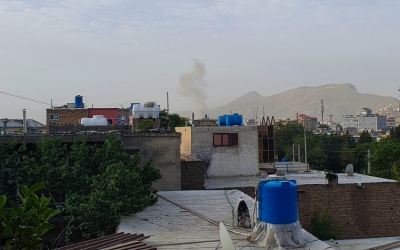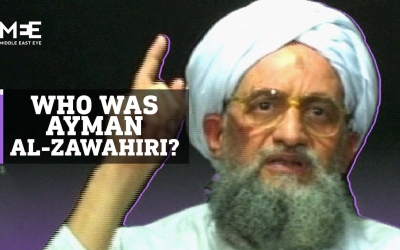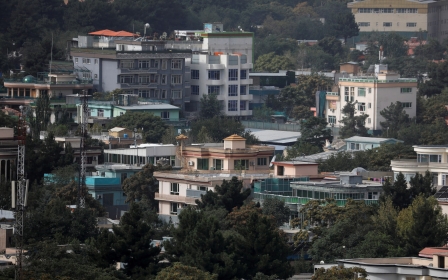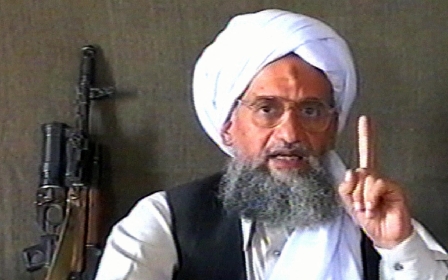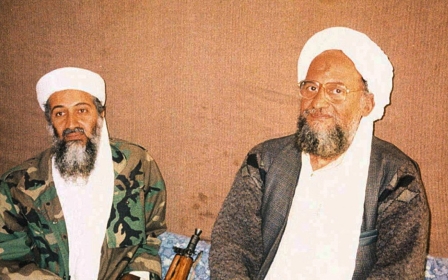Ayman al-Zawahiri killing: Did the US or Taliban violate the Doha agreement?
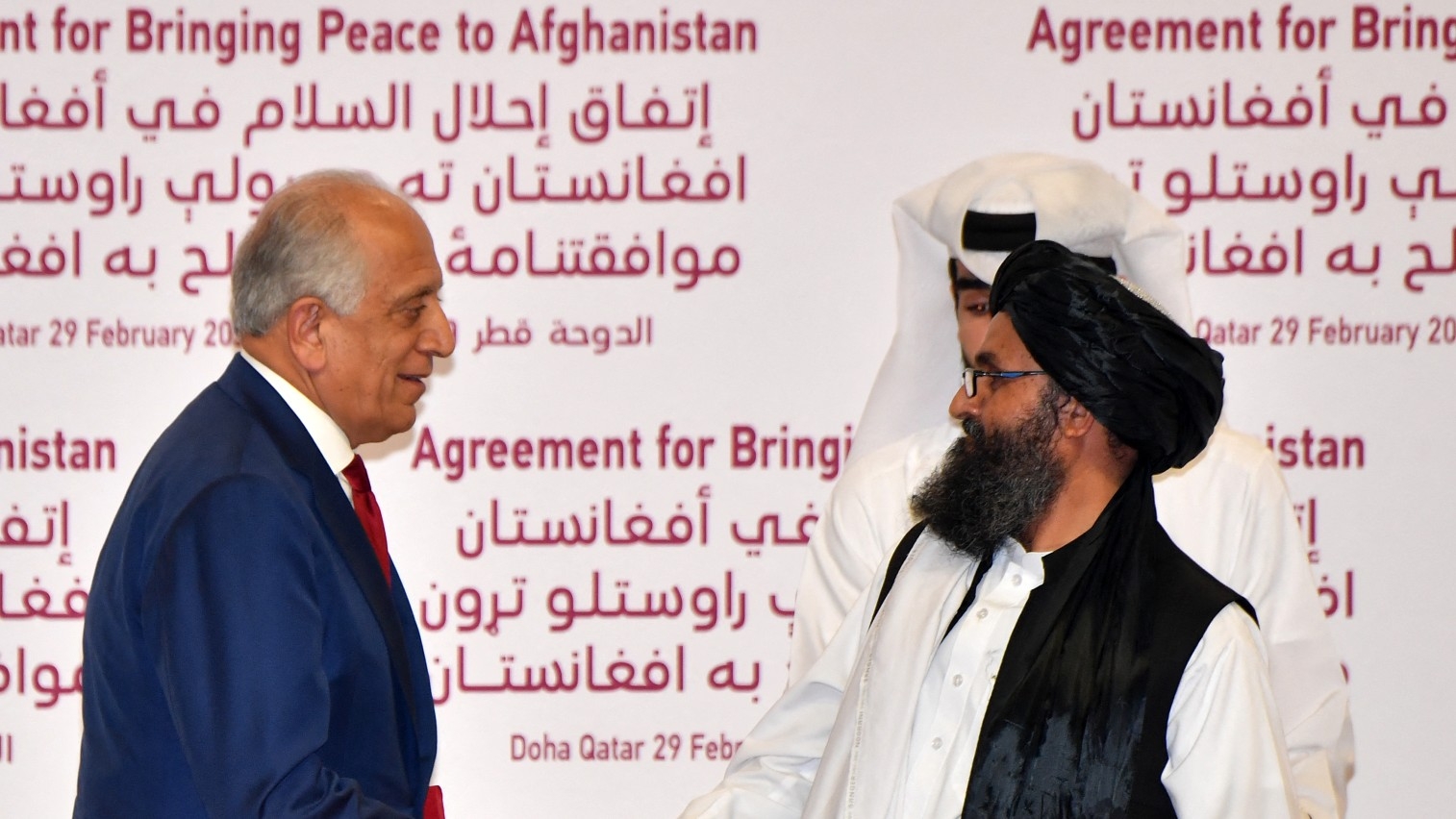
The Doha agreement, struck between the US and the Taliban some two years ago, has been the subject of intense debate since the targeted assassination of al-Qaeda leader Ayman al-Zawahiri.
Zawahiri was killed on Sunday morning when a US drone strike targeted the 71-year-old while he stood on the balcony of his villa in the capital Kabul.
A veteran militant with a $25m reward on his head, Zawahiri had helped coordinate the 9/11 attacks on the US that killed nearly 3,000 people.
Speaking on Monday afternoon, US President Joe Biden declared that "justice has been delivered" and Washington would not allow Afghanistan to become a "terrorist safe haven" again.
While Biden made no mention of the Taliban or of the agreement, US Secretary of State Antony Blinken later issued a scathing rebuke of the Taliban for its "unwillingness or inability" to abide by the commitments it made during the 2020 Doha Agreement with the US to end America's longest war.
"By hosting and sheltering the leader of al-Qaeda in Kabul, the Taliban grossly violated the Doha Agreement and repeated assurances to the world that they would not allow Afghan territory to be used by terrorists to threaten the security of other countries," he said.
He added that the drone operation was to protect Americans against terrorist threats emanating from Afghanistan, adding that Washington will continue to support the Afghan people with "robust humanitarian assistance".
However, the Taliban, which returned to power in Afghanistan last year, condemned the strike and without naming Zawahiri claimed that it was a violation of the Doha deal.
"Such actions are a repetition of the failed experiences of the past 20 years and are against the interests of the US, Afghanistan and the region," Taliban chief spokesperson Zabihullah Mujahid said in a statement.
The Doha agreement being brought up by both sides has led to major debate - just a day after the announcement of the killing - as to who violated the agreement and what consequences, if any, would result in light of breaking the accord.
"It's an agreement that lives only in the quality of trust between the two parties. And that trust is badly eroded," Graeme Smith, an author and consultant with nearly a decade of experience in Afghanistan, told Middle East Eye.
What is the Doha agreement?
The Doha agreement was brokered by former US President Donald Trump, who had campaigned on a pledge to finish "endless wars".
Following 17 years of bloody war and various failed attempts at diplomacy, the deal was signed in February 2020 by US special envoy Zalmay Khalilzad and Taliban political chief Mullah Abdul Ghani Baradar, with former US Secretary of State Mike Pompeo serving as a witness.
The Taliban agreed that Afghanistan would not be used by groups like al-Qaeda, the Islamic State in Khorasan (IS-K) or other terrorist groups to conduct attacks that "threaten the security of the United States".
'The Doha agreement never really had an enforcement or arbitration mechanism in it'
- Ibraheem Bahiss, International Crisis Group
The Taliban also agreed to take part in peace talks with the Nato-backed Afghan government – a prospect the group had previously dismissed.
In return, the US pledged to reduce its number of troops in Afghanistan, followed by a full Nato withdrawal.
After Biden entered office, the White House delayed the end date of the US withdrawal until 11 September 2021.
But in the days leading up to the planned withdrawal, the Afghan government collapsed and former President Ashraf Ghani fled the country.
At the time, the Taliban were engaged in a blitzkrieg which saw the armed group make large territorial gains across the country.
No way to arbitrate
The Doha agreement was seen as a great achievement in getting both the Taliban and the US, which had been fighting for decades, to come to a negotiated settlement. However, part of the reason why the agreement was signed by both parties was the vague language it employed.
According to Ibraheem Bahiss, an analyst with International Crisis Group's Asia programme where he assesses peace and conflict developments in Afghanistan, it is that same language that makes it unclear who exactly violated the agreement.
"The language is very vague in many ways, and was perhaps deliberately vague to allow both sides to be comfortable with it," Bahiss told MEE.
"Providing enough assurance to allay US concerns that Afghanistan will not become a safe haven in the future. And at the same time, allaying Taliban concerns that they will not be forced to take actions against these groups which could implicate or challenge their cohesion as a movement."
For the US, it sees Zawahiri's presence in the Afghan capital as a violation, considering that the agreement stipulates that the Taliban "will not host" any "international terrorist groups", including al-Qaeda.
A White House official said in a briefing on Monday that soon after the drone strike, the Taliban quickly worked to cover up any presence of Zawahiri being there.
"The Haqqani Taliban members acted quickly to remove Zawahiri's wife, his daughter, and her children to another location, consistent with a broader effort to cover up that they had been living in the safe house," the official said.
The Taliban see the agreement as mandating that they prevent groups like al-Qaeda from launching international attacks, and not completely expelling its members from the country.
Regardless of which side violated the agreement, Bahiss said that "the Doha agreement never really had an enforcement or arbitration mechanism in it".
"So if there's disagreements on the interpretation of each party's obligations, there never really was a mechanism that would settle the dispute," he said.
A one-off strike
Since the Taliban seized power last August, both they and the US have accused each other of violating the accord.
"This has been an ongoing kind of feature since the Doha agreement was initiated, where each side seems to accuse the other of violations," said Bahiss.
'Bombing countries hasn't turned out to be a way of making those countries safer and more stable'
- Graeme Smith, author and consultant
The Doha agreement states that Washington may commit military operations in Afghanistan against al-Qaeda and other militant groups "with the consent of the Islamic Republic of Afghanistan".
Yet it is unclear if that extends to the Taliban government, the de facto authority in the country. A White House official said on Monday that the US did not notify the Taliban of the strike, or engage in any coordination with them.
It is also unclear whether this sort of strike was simply a one-off event or whether it was a preview of more to come, as the Biden administration has touted the effectiveness of its "over the horizon" drone programme.
Biden on Monday emphatically said, "No matter where you hide, if you are a threat to our people, the United States will find you and take you out".
"It shouldn't be considered the go-to option for dealing with security threats emanating from Afghanistan and because it just hasn't worked in the past," Smith said.
"Bombing countries hasn't turned out to be a way of making those countries safer and more stable."
Smith, who is also a senior consultant for the International Crisis Group, noted that despite the anger seen in the accusations coming from both sides, there still appears to be room for diplomacy going forward.
"Fortunately, the two sides are still talking," he said. "Since the strike, I've been in touch with both Taliban and Americans who negotiate with them. And both sides say that this will not shut the door to future cooperation. But there's a lot of testiness."
Middle East Eye propose une couverture et une analyse indépendantes et incomparables du Moyen-Orient, de l’Afrique du Nord et d’autres régions du monde. Pour en savoir plus sur la reprise de ce contenu et les frais qui s’appliquent, veuillez remplir ce formulaire [en anglais]. Pour en savoir plus sur MEE, cliquez ici [en anglais].


